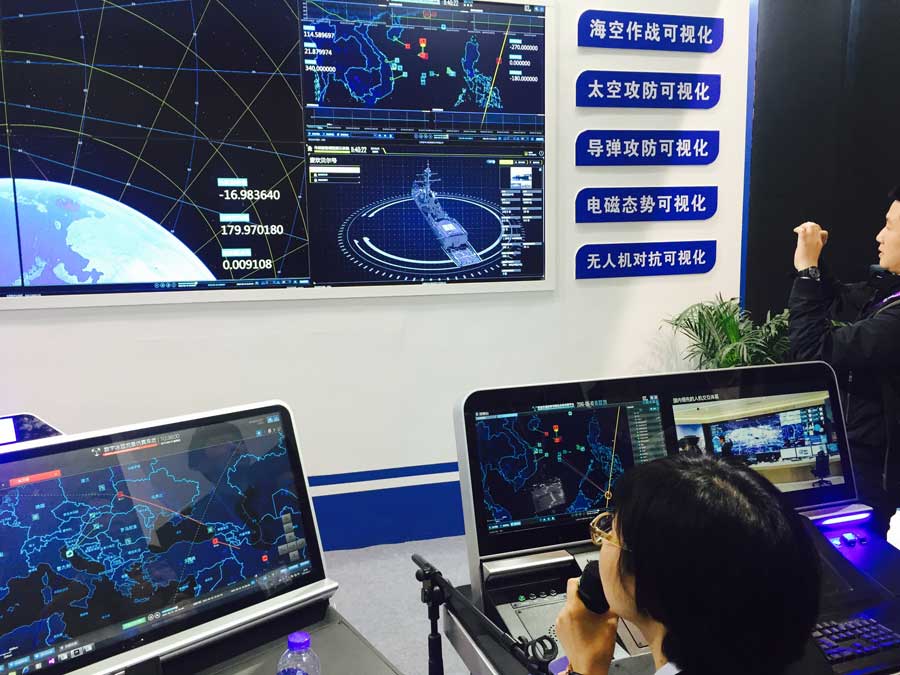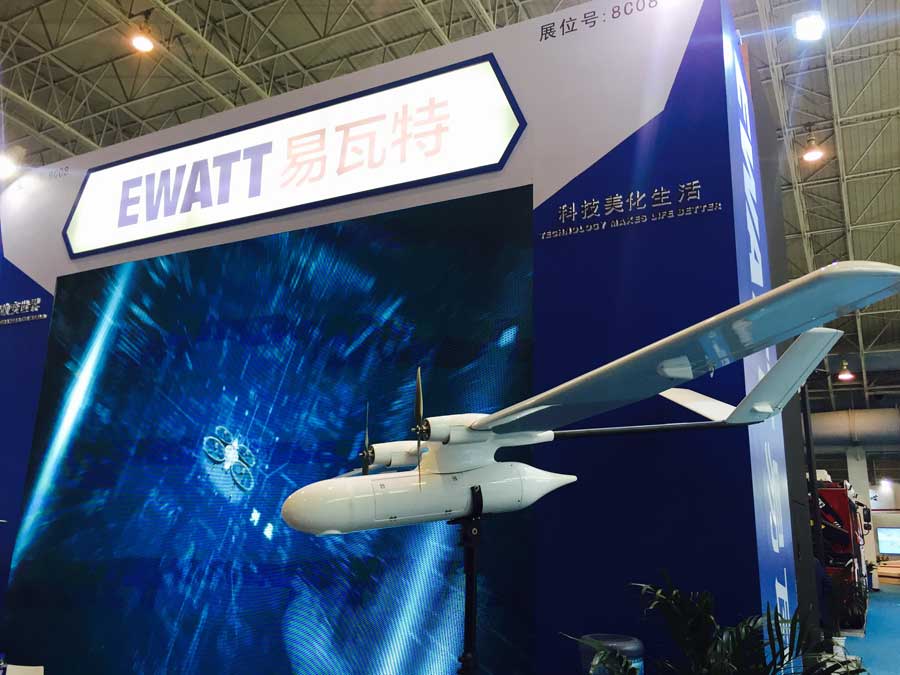

As China pushes forward the national strategy of military-civilian integration, private companies long for more space to put their advanced technology and innovative ideas to military use.
Military-civilian integration – which aims to add more civilian forces into military equipment development and to introduce military technology back into civilian industries – was announced as a national strategy by Chinese President Xi Jinping in 2015. The country has since witnessed the booming development of this nationwide trend.
Despite a great deal of enthusiasm, however, it remains relatively difficult for private companies to freely access the lucrative military market, according to several private company exhibitors at the Beijing Civil-Military Integration Expo on April 13.
Several private company exhibitors pointed out that they were seldom visited by military officers when they attended such kind of expo to seek cooperation opportunities. Rather, they always go to the "national team" of State-owned enterprises or military institutes.

(Photo:People's Daily Online/Jiang Jie)
Digital Hail is China’s leader in providing analysis and decision-making support based on data visualization. It is also one of not so many private companies in China to successfully cooperate with the military. According to employees at the company's exhibit, the company's battle simulation system is now serving a number of military units, and the company also provided visualization systems for the launch of several satellites.
The founders’ experience with military units is undoubtedly one of the key reasons they were placed high on the list of potential partners. Digital Hail also holds all four qualification certificates to conduct military-related research and development.
China requires four certificates to officially allow a company to do military-related research and development. Among other things, companies much be authorized as weapons manufacturers and hold production permits. Additional qualifications are also needed to guarantee a company’s confidentiality and military-standard quality management.
However, even for rare fully-qualified private companies like Digital Hail, it is hard for them to receive bigger projects and project funds for private companies are usually "way lower" than those received by the "national teams," said an anonymous insider.
It is still quite difficult for private companies to acquire all four qualifications in a short time, noted Liu Pan, sales director of EWATT Technology Co. Ltd., a leading drone maker based in Wuhan, Hubei province.
EWATT is famous for its drones used in power cruising in China, but the company has also started working with military institutes and armed police forces to carry out geological surveys. However, this cooperation only accounts for 20 percent of the company’s total revenue, Liu revealed.

(Photo: People's Daily Online/Jiang Jie)
“Not only are the qualifications hard to acquire, there is actually a whole separate standard of qualification for our products when they are intended for military or police use. Our products have undergone qualification tests with top authorities dozens of times, but we still need to pass a new test administered by military and police authorities if we want to bid for a military project. Such tests cost hundreds of thousands of RMB,” Liu told the People’s Daily Online.
Several exhibitors agreed, noting that private companies often have an advantage in cutting-edge technologies, and it would be useful if they could put those technologies to use in the military.

 Award-winning photos show poverty reduction achievements in NE China's Jilin province
Award-winning photos show poverty reduction achievements in NE China's Jilin province People dance to greet advent of New Year in Ameiqituo Town, Guizhou
People dance to greet advent of New Year in Ameiqituo Town, Guizhou Fire brigade in Shanghai holds group wedding
Fire brigade in Shanghai holds group wedding Tourists enjoy ice sculptures in Datan Town, north China
Tourists enjoy ice sculptures in Datan Town, north China Sunset scenery of Dayan Pagoda in Xi'an
Sunset scenery of Dayan Pagoda in Xi'an Tourists have fun at scenic spot in Nanlong Town, NW China
Tourists have fun at scenic spot in Nanlong Town, NW China Harbin attracts tourists by making best use of ice in winter
Harbin attracts tourists by making best use of ice in winter In pics: FIS Alpine Ski Women's World Cup Slalom
In pics: FIS Alpine Ski Women's World Cup Slalom Black-necked cranes rest at reservoir in Lhunzhub County, Lhasa
Black-necked cranes rest at reservoir in Lhunzhub County, Lhasa China's FAST telescope will be available to foreign scientists in April
China's FAST telescope will be available to foreign scientists in April